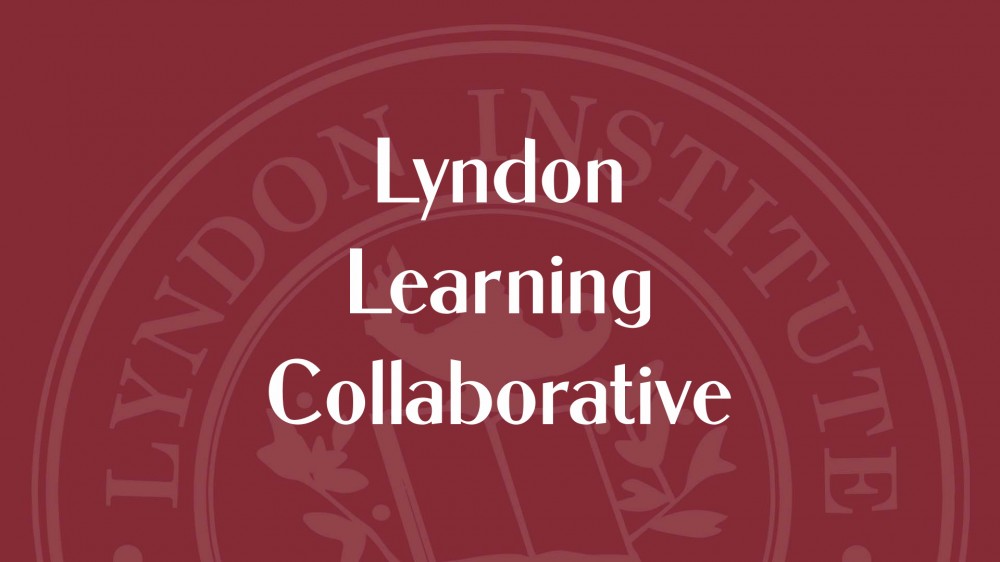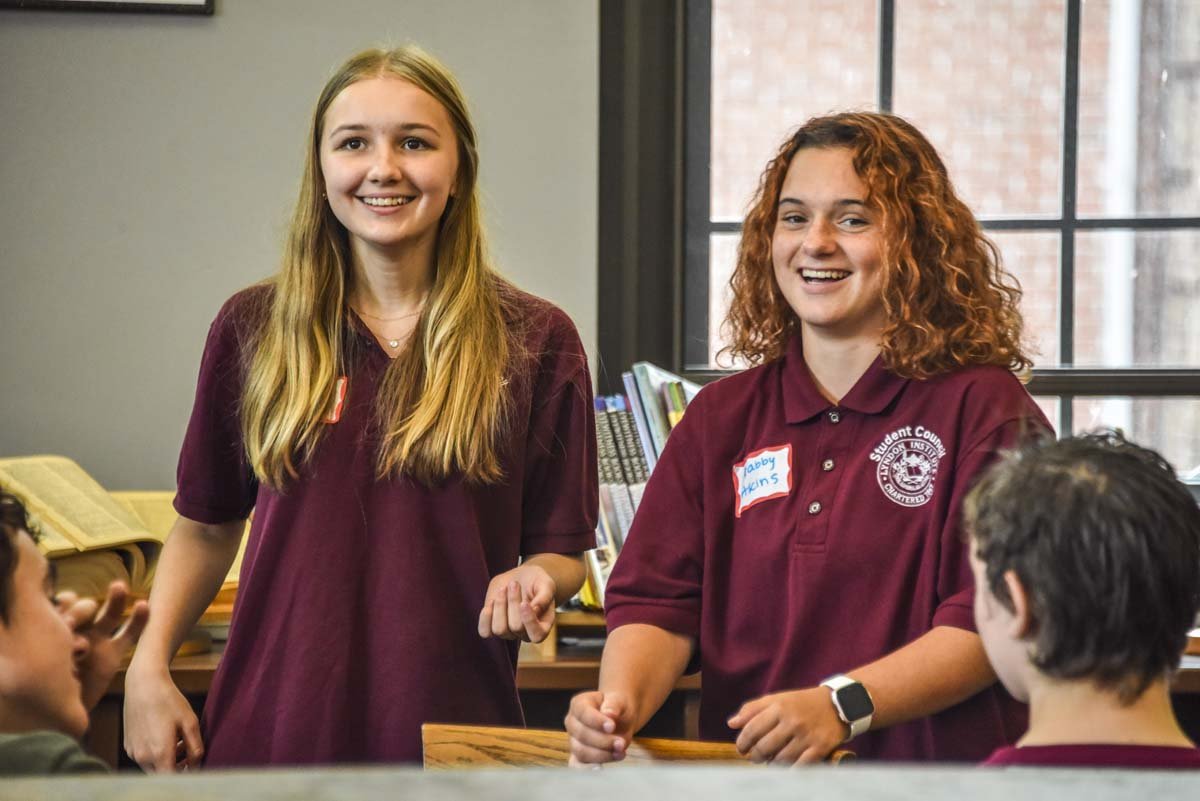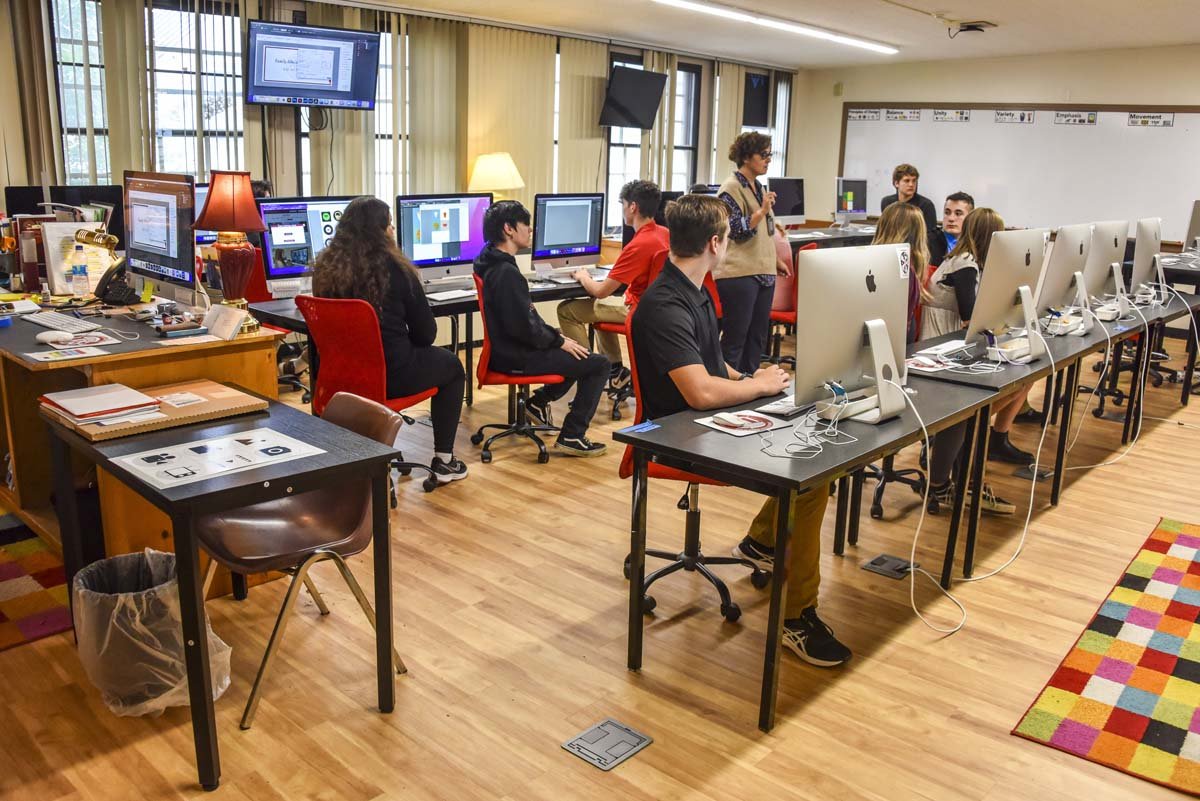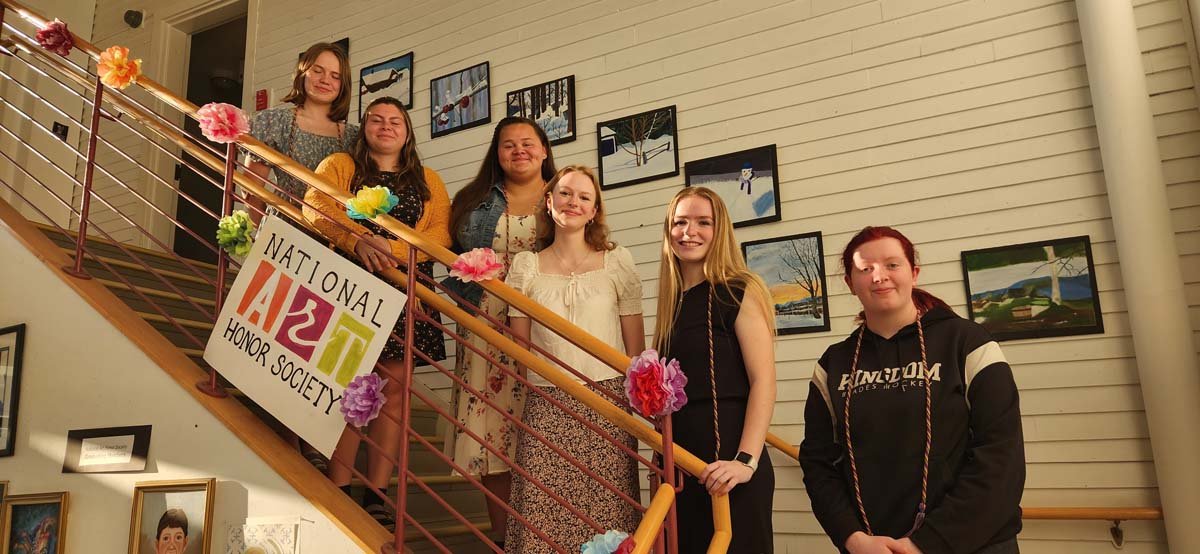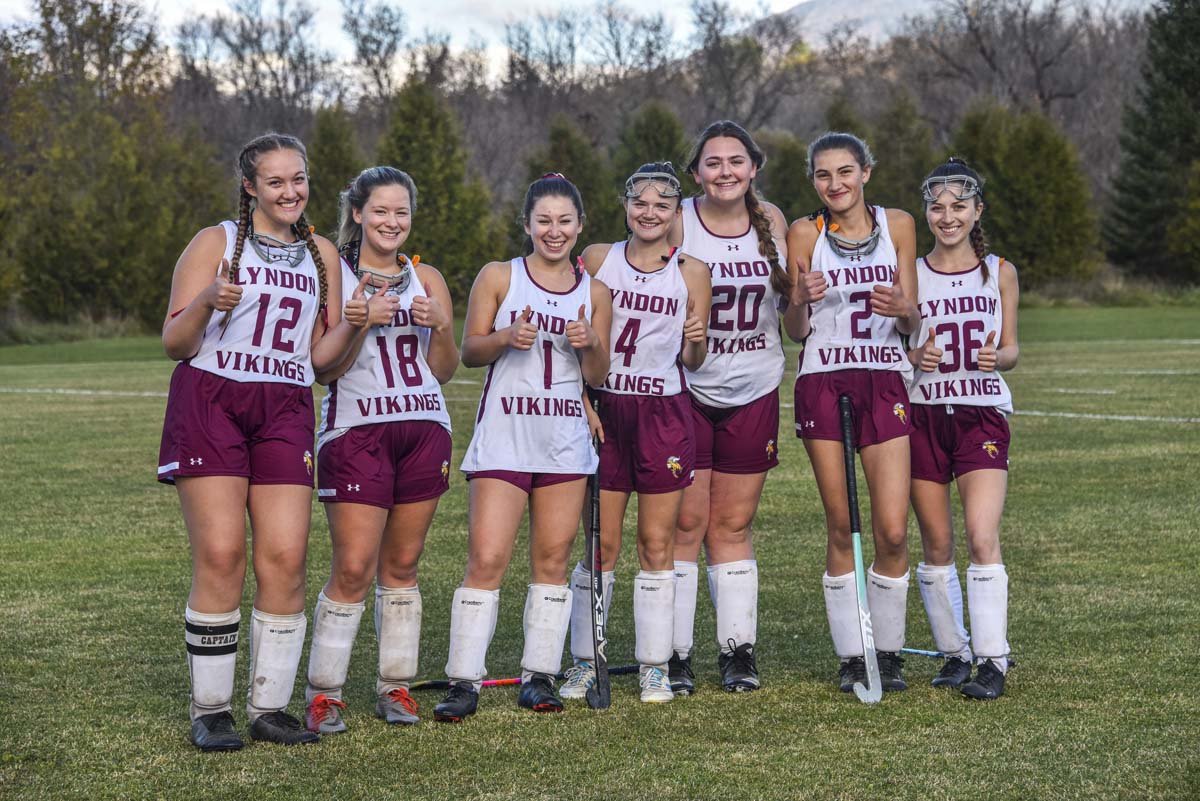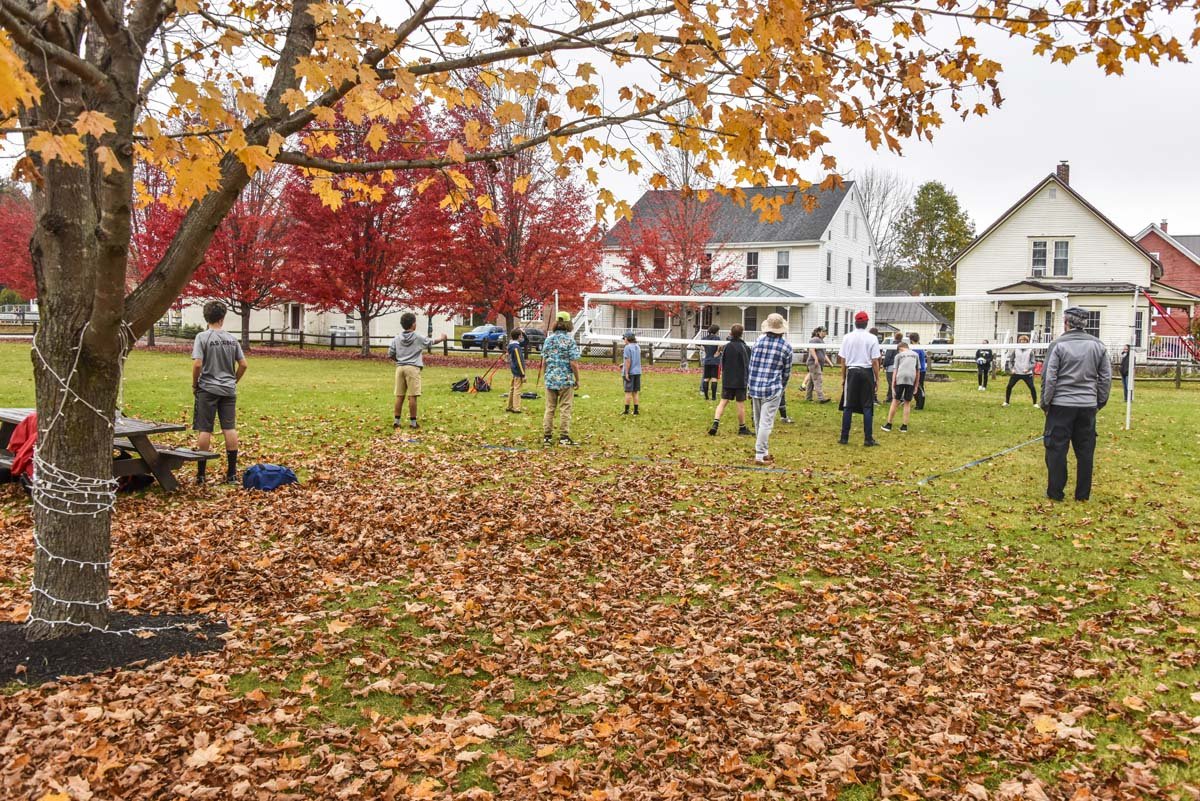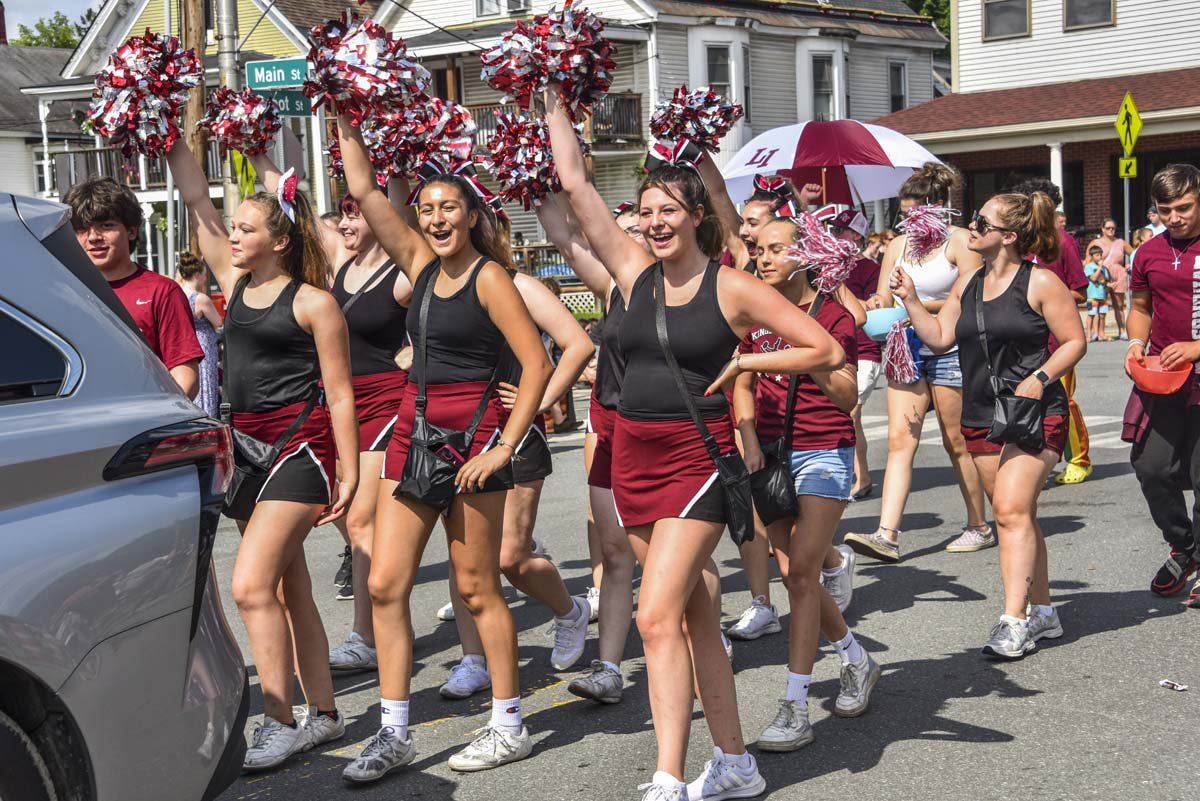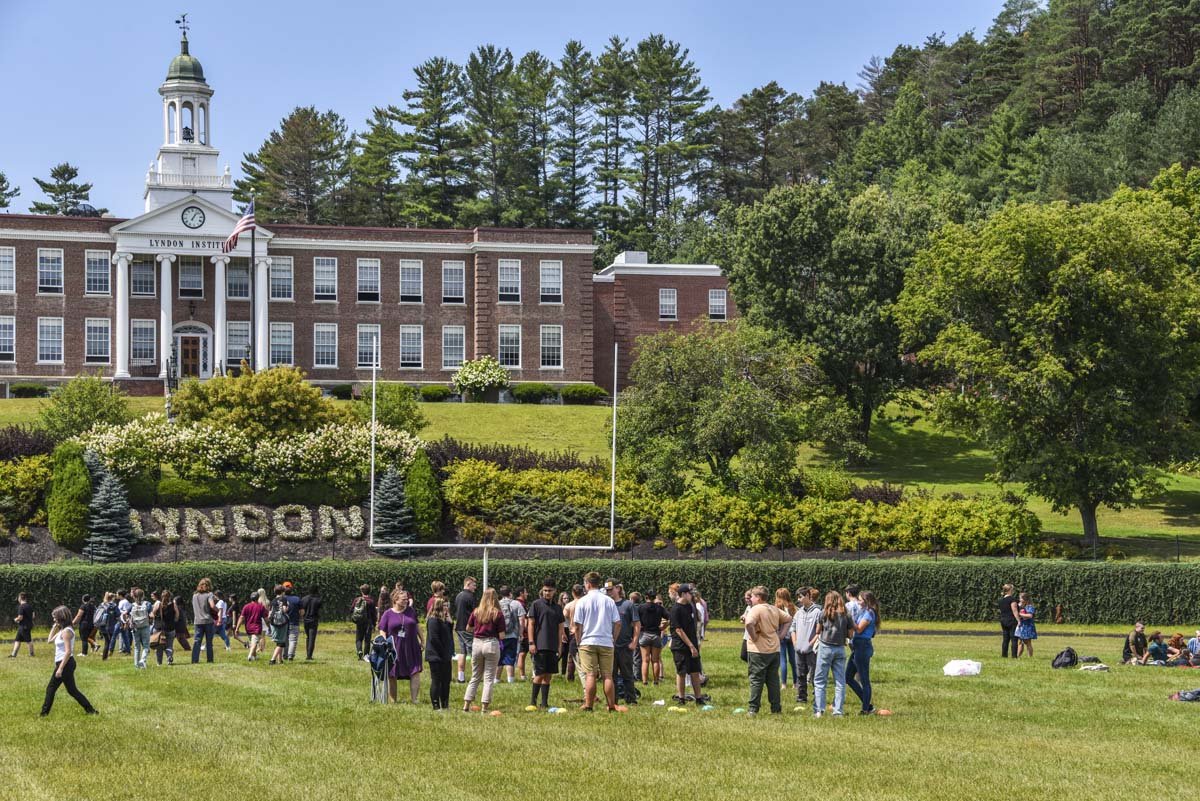- Our School
- Admissions
-
Academics
- Divisions and Faculty
- Commencement 2024
- January Term
- International Program (ESOL)
- College and Career Counseling
- Upward Bound
- Library/Monahan Academic Commons
- Career/Technical Education
- Lyndon Learning Collaborative
- Flexible Lyndon Institute Pathways (FLIP)
- Specialized Instruction
- Adult Continuing Education
- Lyndon Institute Course Catalog
- Student Services
- Arts
- Athletics
- Campus Life
- Support LI
- Alumni
« Back
The Lyndon Learning Collaborative: A Door to Higher Education
July 8th, 2021
by David Stahler Jr.
Lyndon Center, VT - While dual enrollment—opportunities for high school students to take courses for college credit—has been around for a while and has begun gaining momentum in recent years, Lyndon Institute has managed to stay ahead of the curve. For six years now, its groundbreaking “Lyndon Learning Collaborative” (LLC) program, which allows eligible LI seniors to complete their freshman year at Northern Vermont University during their senior year of high school, has given forty-five seniors a jump start on higher education, not only boosting their college-readiness skills but collectively saving them nearly half a million tuition dollars in the process.
Origins
“The seed of LI’s LLC program started with Rick Hilton,” says LLC Coordinator Dr. Adam Norwood, who has guided the LLC program from its beginning and who teaches one of its foundational courses. Hilton, who served fifteen years as head of school, pushed hard to bring dual enrollment opportunities to LI students and conceived of a program that would go beyond offering students a few credits here and there. With the state already offering all Vermont students up to two free vouchers for college courses, advanced students had already been taking individual courses at Lyndon State College (which became NVU-Lyndon in 2018) for several years. But given the college’s proximity to LI’s campus, Hilton felt an opportunity for more was within reach. Toward the end of his tenure, negotiations for a new program with LSC’s administration began.
The Lyndon Learning Collaborative debuted in 2015, the year after Hilton retired. “We started with eight seniors,” Norwood says. “Our goal was to give our students—particularly those for whom attending college might seem like a formidable goal—a clearer path, to make it easier to access higher education in part by significantly lowering the cost of earning a degree.”
It helped that several LI teachers were already working as adjunct faculty, teaching courses across the curriculum up at LSC, which made the transition to teaching within the LLC program on LI’s campus an easy process.
Originally, the program was fairly limited. While LLC students would earn a year’s worth of credits, they would only get to keep them if they remained enrolled at LSC, at which point they would enter the following year as a sophomore. If they attended a different college and still wanted the credits, they would have to purchase them at the going rate for in-state students. A few years into the program, however, the college changed its policy. Lyndon Institute now pays a fee for each student and, in exchange, students are allowed to keep the credits and have no obligation to attend NVU the following year, though most opt to remain in the VSC system.
The Program
In order to join the Lyndon Learning Collaborative, students must apply directly to NVU, whose admissions officers review each candidate’s eligibility, which includes having a minimum 3.0 GPA for their LI coursework. Once accepted, students must take at least twelve credits each semester and maintain a minimum 2.0 GPA to remain enrolled.
The number of LLC course offerings has grown since its inception. Currently, the program offers over a dozen courses taught directly on LI’s campus by eight faculty members approved by NVU in all the core subjects, as well as in art and graphic design. Unlike LI’s regular classes, which traditionally have run a full year, the in-house LLC courses have always been semester-long classes that meet three times a week to mirror those taught on NVU’s campus.
This is a large part of the LLC ethos and embodies one of the program’s goals. “The Lyndon Learning Collaborative isn’t just about saving students money, though that’s an important part of it,” says Norwood. “It’s also about giving our students as close to a ‘college’ experience as possible, so that when they leave LI they’ll have a leg up in adjusting to a different way of experiencing education.” Much of this involves time management—with college courses meeting fewer times per week and students having more downtime than they’re used to in high school, a greater burden of the learning falls on students outside of the classroom, making understanding how to self-regulate and manage time a vital skill. “We give them the kind of downtime they’ll experience on a college campus but within the framework of a safety net to help improve the odds of success.”
In fact, Norwood’s LLC course—INT 1020 Entering an Academic Community—is a required class during a student’s first semester in the program. Essentially a “How to Succeed in College Life” course, the orientation covers everything from time and stress management to research writing skills to learning how the brain functions to more mundane aspects of college life, such as how college credits work, the differences between majors and minors and different kinds of degree programs, and even how to communicate with professors and take advantage of office hours.
This aspect of the program is enhanced by one of the LLC’s other strengths: it isn’t limited to the LI campus. Included in the fee LI pays for its students is access to up to two classes per semester at NVU, taught by NVU faculty, giving students the option to spend part of their day up the hill on the college’s campus. “From there, the opportunities expand even further,” Norwood notes. “Students can delve deeper into areas of study that interest them or explore new ones, from the social sciences to economics. Just recently, one of our students took a 3000-level psychology course and did quite well.”
Enrollment comes with other benefits. In addition to taking classes on NVU’s campus, LLC students also get access to the Vermont State College System’s large network of online courses, opening up even broader opportunities for learning. And because LLC students are officially enrolled as NVU freshmen, their NVU student IDs give them access to the college’s facilities and amenities, from the pool to the library to the college’s arts and music studios.
While Lyndon Institute covers each student’s enrollment fee (approximately $1300 per semester) in full, the program isn’t entirely free. Students are responsible for the cost of books, lab and material fees, as well the ancillary fees for things like student IDs and a parking permit if they drive to NVU’s campus. “Still,” adds Norwood, “the chance to pick up credits worth over $11,000 per year in tuition is hard to beat.”
Excitement for the Lyndon Learning Collaborative isn’t restricted to LI. “The VSC Board of Trustees have established four strategic priorities for Vermont’s state colleges: access, affordability, quality, and relevance,” says NVU Provost, Nolan Atkins, who has been involved with the LLC program from its earliest days. “The LLC program reflects these priorities and fits the NEK profile well, particularly when it comes to access and affordability. For local students who may be more place-bound or in search of an affordable pathway to higher education, the chance to earn that first year of college for next to nothing is huge.” As for students who opt to continue their experience at NVU after high school, the LLC program has another benefit, as well. “Our data shows that LLC students go on to have higher retention and completion rates than their peers. We would love to see even more LI students take advantage of the program.”
First-hand Experience
Lyndon Institute alum Jade Berry credits the LLC program for giving her a leg up. The twenty-year-old just graduated from NVU after only three years and with zero debt. Berry has been accepted into several graduate programs, including one at the University of Vermont, and is now in the process of deciding which one to choose. “The program gave me a huge head start,” she says. “What I really appreciated was being able to use my LLC credits to get most of my gen eds out of the way, which freed me up to focus on my major.”
As a faculty member, I’ve watched many of my students over the last several years take advantage of the LLC program. For some, it has served as a powerful motivator, helping them mature as learners and raise the bar for themselves academically. For others, it has opened doors and enabled them to take the leap into higher education that they might not have had the courage to take on their own.
However, as a parent, I was able to witness the benefits of the program first-hand when my son joined last year as a senior. While he was already an accomplished student planning on attending the University of Vermont, the program gave him the opportunity to take multiple classes on NVU’s campus each semester, including classes in digital recording and music production with a Grammy Award-winning instructor, a field he was interested in possibly pursuing as a career. Though he still spent his mornings at LI taking LLC classes, as well as an AP course, he spent most afternoons at NVU, attending classes with other college students, doing research at Samuel Read Hall Library, and meeting with professors. In the evenings, he would often spend scheduled time in the college’s digital recording studio to work on music projects. And when he graduated in the spring, he was able to transfer all 26 credits he’d earned over to UVM, giving him nearly a full year of credits which he can now use to graduate early (from a school that now costs in-state students almost $36,000 per year) or take a reduced course load if he chooses to go the full four years.
I tell my students that success in life often comes down to the opportunities you create for yourself, and the more opportunities you take advantage of, the more options you have. The Lyndon Learning Collaborative is all about giving LI students more opportunities, more options in a world that increasingly connects higher education to success.
Posted in the category Front Page.

